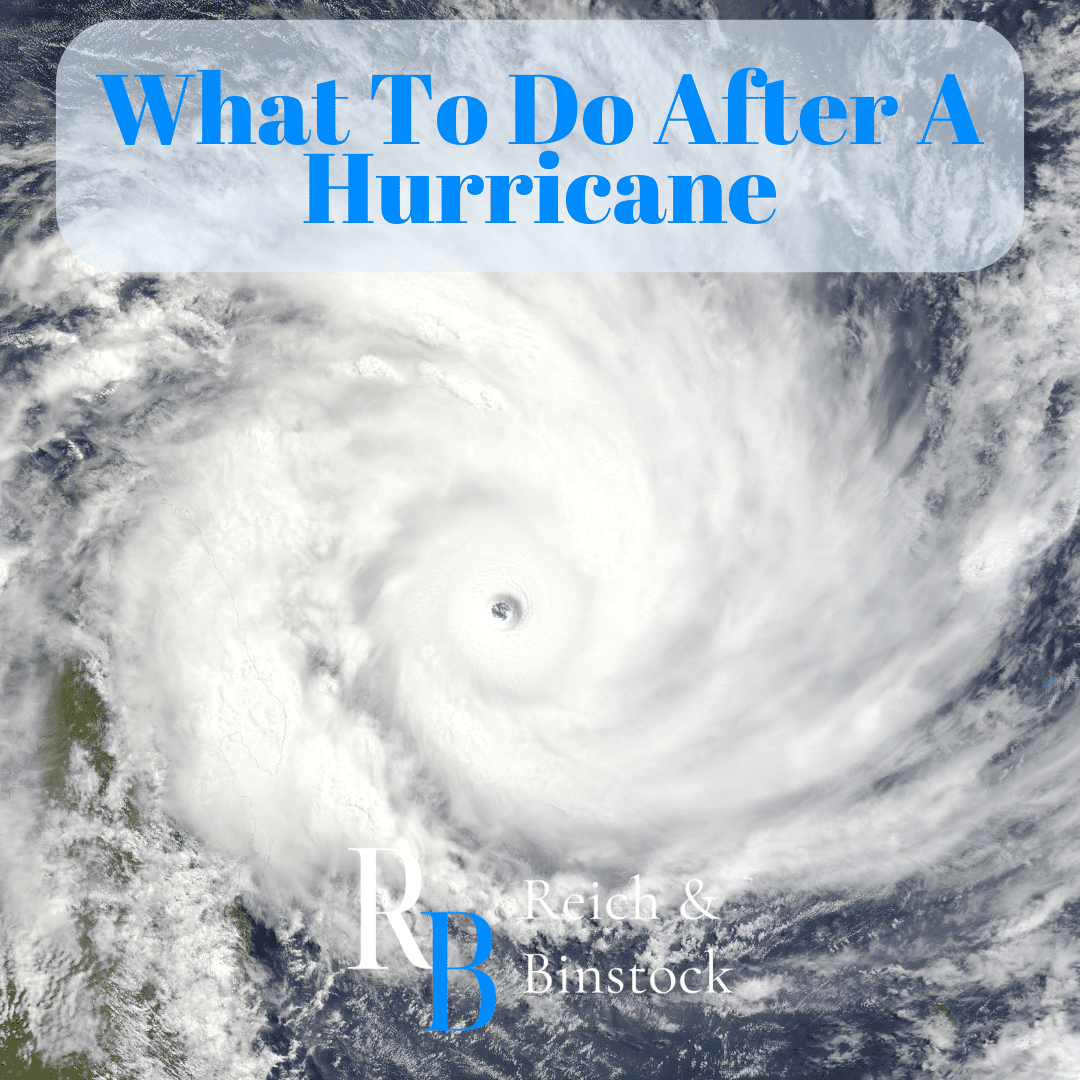After a hurricane strikes such as the recent Hurricane Matthew, it’s important to promptly make an insurance claim. These tips come directly from Florida’s Chief Financial Officer. Here’s what to do after a hurricane:
Assess Property for Damage After a Hurricane
If it is safe, carefully assess your home and property for damage. As soon as you are you are able, take pictures of any damage. These photos will be helpful when filing an insurance claim. Maintain copies of your household inventory and other documentation. This will assist the adjuster in assessing the value of the destroyed property.
If you have damage, contact your insurance company directly as soon as possible to file a claim. Insurance adjusters have already been deployed into impacted areas to help manage your claims.
Do not allow a third party, such as a water remediation firm or contractor to contact your insurance company for you.
Assignment of Benefits
If you are asked to sign an Assignment of Benefits form by a contractor, make sure you read it carefully and understand clearly what rights and benefits under your insurance policy you may be signing away. You do not need to sign an AOB in order to get your insurance claim processed or your residence repaired.
Signing over your insurance benefits to a contractor may cause an increase in costs for which you could be left on the hook. Make sure that you stay in control of the home insurance policy you bought and paid for – and do not sign away that control to a third party who may not have your best interests at heart.
When possible, take steps to make temporary repairs that can help prevent further damage from occurring. Keep your receipts for any repairs or supplies you purchase. You may be reimbursed as part of your claim.
What Will My Insurance Cover?
Even if take all the right steps, you may be disappointed to find that the insurance company is not willing to cover the damages claimed. Insurance policies can be very tricky and what the cause of the damage is can make all the difference. Here are 5 things insurance companies tend to not cover resulting in you being a victim of a bad faith insurance claim.
Flood Damage
Flooding-Damage caused by flooding is typically not covered by an average homeowner’s insurance policy. Getting additional flood insurance is generally required. This is despite the fact that the rising waters were induced by the hurricane, itself. If you don’t have flood insurance, you may still be able to receive help from the Federal Emergency Management Agency (FEMA), although FEMA will not cover all the losses you suffered from water damage.
Deductible
Your Deductible-Even if you have insurance, you still have to have enough spare funds to cover your deduction. Your deductible can be several hundred dollars and can depend on the type of damage your home sustained. For example, in the case of wind damage, there are two kinds of deductibles, one that applies for storms and one that applies for hurricanes.
Sewer Backups
Sewer backups caused by runoff water are typically not covered by a homeowner’s insurance policy.
Mold
A mold infestation not only looks disgusting but also is a health risk that the Centers for Disease Control and Prevention says can bring about symptoms similar to allergies or even breathing difficulties. Mold can grow quickly when surfaces become damp and can be very expensive and time consuming to remove.
Expensive Items
Things like jewelry and electronics also may not be covered under a typical policy. You may need to get an additional policy to protect these items.
Houston Hurricane Insurance Claims Lawyers
If you believe that your hurricane insurance provider is acting in bad faith, contact one of our experienced Houston hurricane insurance lawyers at Reich and Binstock for a free consultation.













